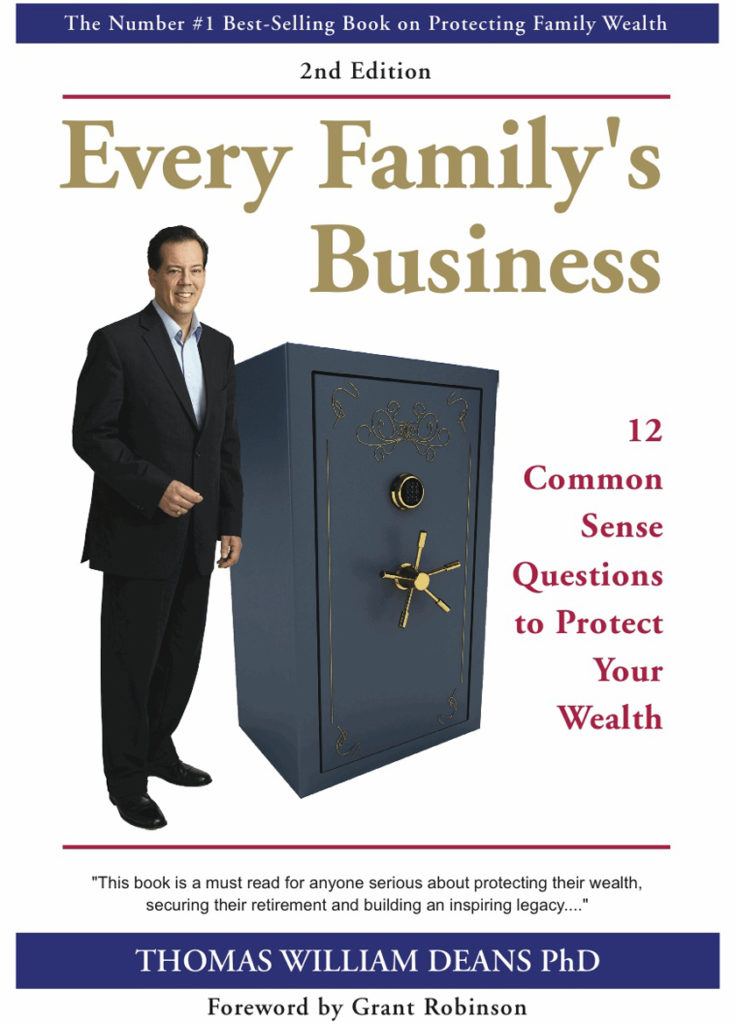Preserve Family Business Value: An interview with Thomas W. Deans, PhD

Note: Thomas Deans is the author of Every Family’s Business which the NY Times has listed as one of the ten books every business owner should read. Tom has been an owner of a very successful family business and currently spends much of his time speaking in the U.S. and Canada to groups of business owners. Tom is speaking at The Lancaster Country Club on 9/28/2017. Learn more at http://conta.cc/2vMNEAz
DSF: What is the major problem with family businesses?
TWD: Family businesses are among the most successful enterprises in the country. Some academics argue that they outperform non-family businesses and they might be right. However, family businesses don’t last as long. They tend to die with the founder. Only 30% make it to the second generation. Of the rest, only about one-half are sold. This results in a great waste of financial and emotional capital. The problem is that you can’t run a successful business like a family and you can’t run a family like a business. Family businesses tend to conflate the two. Too many founders measure their legacy by the success and continued family ownership of their business. Rather, they should measure their legacy by the success of their family. This might mean continued business ownership or not depending on circumstances.
DSF: How can these problems be avoided?
TWD: The golden rule for any business is that it must be run so as to maximize its value. Another way of putting this is that a business must be run to be sold—as if it is going to be sold in the near future. A family business must also be run to be sold with the caveat that the buyer might be a next generation family member.
DSF: How should children be given the opportunity to enter the business?
TWD: Generally, it is better for children to work someplace else for a few years before joining the family business. But the key issue is the importance of frank communication with family members in the business. Just because mom and dad are owners does not mean that junior should comport himself as an owner. First, it is important that junior be paid arms-length compensation commensurate with his ability and experience. This compensation should be determined by a third-party—perhaps the company’s accountant or other advisor. Second, junior must understand upfront how he will be given the opportunity to acquire ownership—i.e. not by gift, but only by risking something of value. Third, it is not a foregone conclusion that junior will ever be the controlling owner. Mom and dad retain the right to sell the business to a third-party if they think that is the best course for the business and family. This must be discussed upfront.
Family businesses are born out of love. They are easy to start, hard to manage, and difficult to exit. There is a better chance of success if there is good communication. Great business families understand that family ties are driven by emotion, but there is no room for an emotional attachment to a business.
DSF: You sound pretty skeptical about the family succession process.
TWD: No, not at all. I love it when there is a successful family succession. I just don’t like to see business failure, particularly when it hurts the family.
DSF: Any final word?
TWD: All businesses should be built to be sold—to family members or outsiders. That is the only way to preserve business value.
This blog is an excerpt from my article featured in the September 2017 issue of Business2Business magazine.
